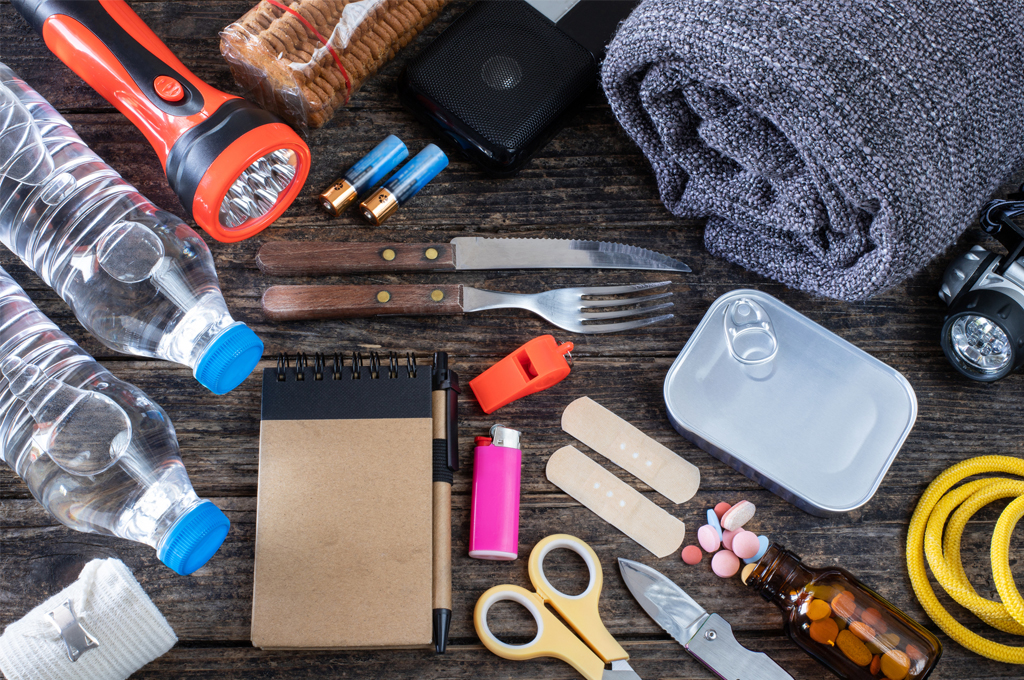May 7 through 13 is Emergency Preparedness Week, and the Eastern Ontario Health Unit (EOHU) is reminding you to be ready in case of emergency. Emergencies often happen with little to no warning, so being prepared can save time, and even your life. The three best ways to be prepared for an emergency are knowing the types of emergencies your area is at risk for, having an emergency plan and keeping emergency kits in accessible areas.
“We have had a variety of emergencies in the last few years, including power outages, flooding, extreme heat events, and snow and ice storms,” says Dr. Paul Roumeliotis, Medical Officer of Health. “These emergencies are not uncommon for our area and our community should know how to be prepared for them. Having emergency plans and kits for these events can help you to keep you and your family safe.”
In the event of an emergency, you may not have much time to act. Everyone in your household should know the emergency plans, including evacuation routes from your home and neighbourhood, emergency contact information, and meeting points if you become separated.
Depending on the emergency, you also may not have access to food, fresh water, and other amenities like electricity, and first responders may not be able to assist you right away. Emergency kits stocked with survival essentials prepare you to be self-sufficient for at least 72 hours, and should be stored in easy to access areas, in both your home and your car.
Some items all emergency kits should contain include:
- Photocopies of important documents (government ID, insurance, bank records etc.)
- 4 litres of water per person, per day, for drinking, cleaning, and hygiene
- Non-perishable foods
- First aid kit
- Battery-operated or wind-up flashlight
- Battery-operated radio
Be sure to check your kits annually and rotate out the food and water to ensure nothing is past its expiry date.
More information on how to prepare for emergencies can be found at www.getprepared.gc.ca and www.ontario.ca/page/be-prepared-emergency.


